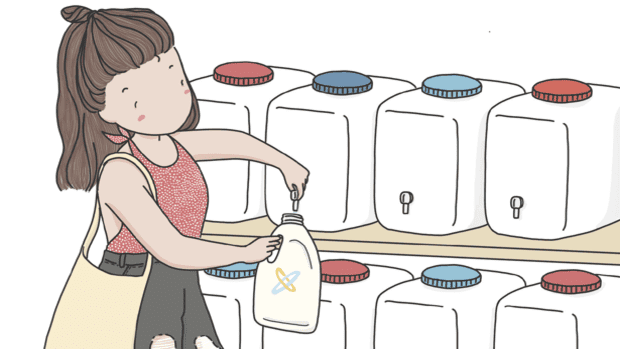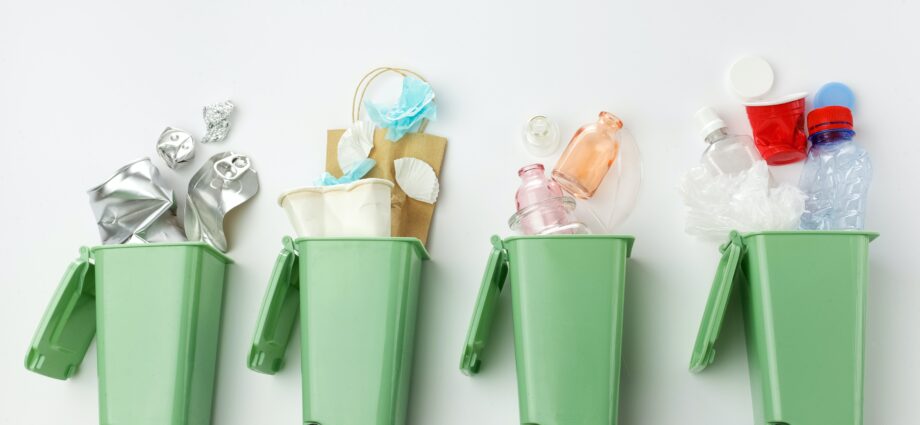Mataupu
E leai ni otaota: E mafai ona taofi le gaosia o otaota?
Saogalemu
In ‘Zero waste for girls in a hurry’ tips and tools are given to stop producing (or reduce a lot) waste

If you search on Instagram #zerowaste, there are thousands and thousands of publications dedicated to this movement that aims to reduce as much as possible the waste that we generate on a day-to-day basis. This ‘philosophy of life’ not only seeks to reduce and not generate waste, but also to rethink the current consumption model.
Although the word ‘zero’ may seem overwhelming at first, it is difficult to imagine literally generate no waste, Claudia Barea, co-author of ‘Zero waste for girls in a hurry’ (Zenith) encourages starting small. “There are people who, for example, have skin problems and do not want to switch to solid cosmetics, so they go for another aspect of ‘zero waste’. Or for example, people who live in remote places where it is impossible for them to buy food in bulk, and they prefer to stop consuming ‘fast fashion’ clothes ”, explains the author.
To begin with, his main advice is to analyze our usual purchases and waste. «Thus, you will have a base from where to start reducing», He assures. The next step, he explains, is to have ‘zero waste’ shopping or consumption kits at hand: a sandwich holder for work, glass jars to buy in bulk … «Also, think about how to take advantage of what you already have in all the senses. For example, a cloth handkerchief can be as much an accessory for your hair as for your bag, or a ‘furoshiki’ type wrapper for Christmas gifts ”, says Barea.
Don’t get carried away by eco-anxiety
The key to everything is to stop and think. In taking a moment to reflect on how and in what world do you want to live», Says Georgina Gerónimo, the other co-author of the book. In addition, it recommends taking it easy, as it ensures that the ‘zero waste’ is practiced step by step and without pressure. “We have to change little by little those things in which we can contribute and not letting ourselves be carried away by eco-anxiety,” he says.
Claudia Barea repeats the idea that all this requires a progressive effort, but not necessarily fast. «For example, you can start byr look for places in your locality where you can buy with your own packaging or container“, He indicates and adds that” changing habits that are so ingrained in our daily lives is not easy, but in the long run it is worth it. ”
Although there are times when people are encouraged to start with reducing waste in terms of food, there are other aspects, such as fashion or personal hygiene, that generate more reluctance. One of these scenarios is to have a sustainable menstruation. “Our society is very accustomed to having everything easy, accessible and as usual”, says Barea, who indicates that, in the case of the intimate hygiene industry, “people who menstruate have become accustomed to have minimal contact with our rule, as if it were something dirty, when it really is something as natural as our hair falling out ». “It may be one of the reasons why it is difficult for us to switch to the cup or cloth sanitary napkins,” he says.
Another area where there are also some first qualms is in the case of the fashion industry. Barea argues that we have a society in which fashion is highly temporary. “Now we buy more and carry less what we have in the closet.” On the other hand, he comments that a piece of clothing whose cotton is locally grown and which has been made by decently paid personnel will always be of a higher cost, which is sometimes difficult to accept.
One of the sensations that someone who starts in the ‘zero waste’ can have is that their work falls on deaf ears, because even if they work on an individual level, companies often still do not have good (and efficient) environmental policies. “It is very sad how at the government level middle-class society is singled out so much to change habits when 100 companies globally have been the source of more than 70% of greenhouse gas emissions since 1988”, says Claudia Barea . Even so, it emphasizes that we as consumers we are a very powerful agent of change. However, the expert conveys a clear idea: that everyone do what they can under their socioeconomic circumstances. “Try not to feel guilty for what you do not do, but rather proud of what you do and what you propose to achieve in the medium or long term,” he concludes.










